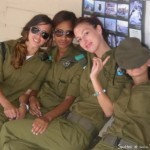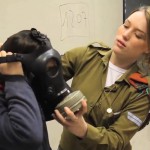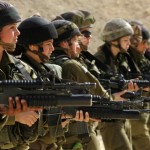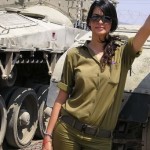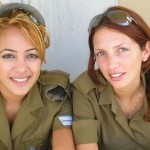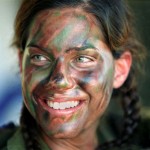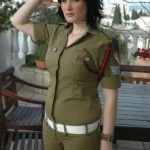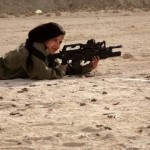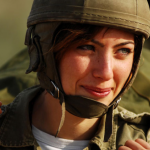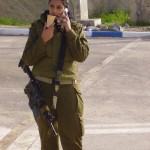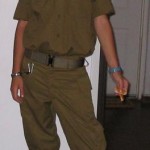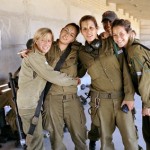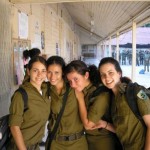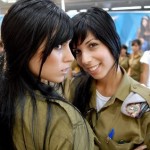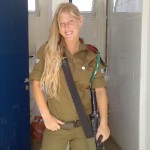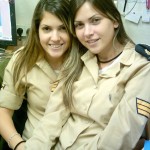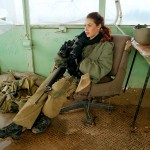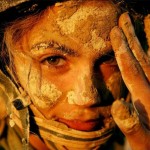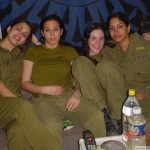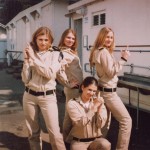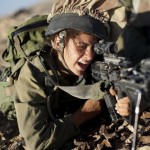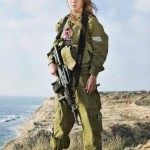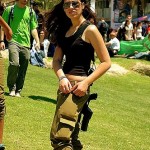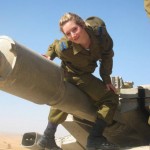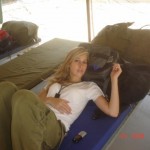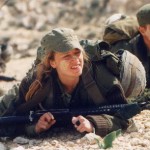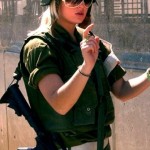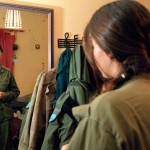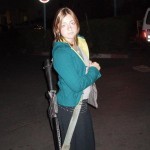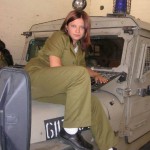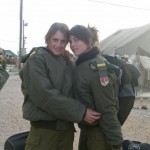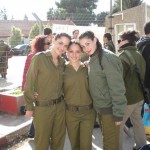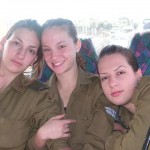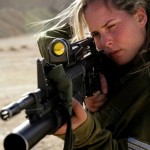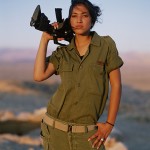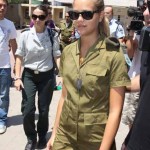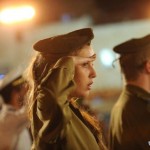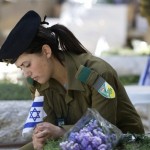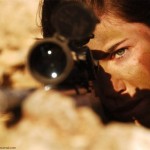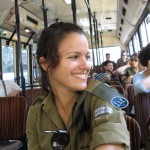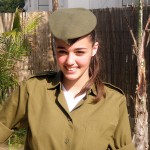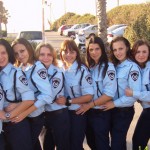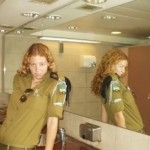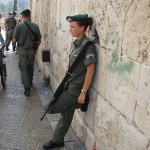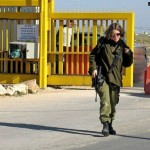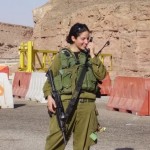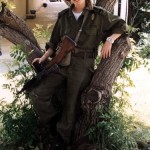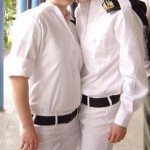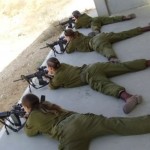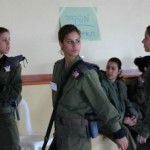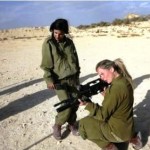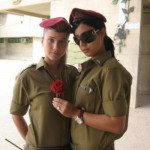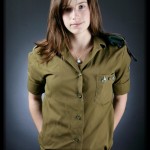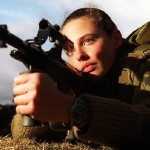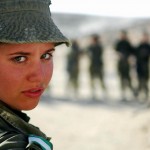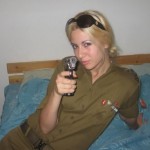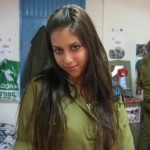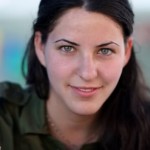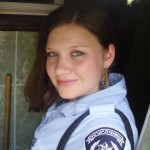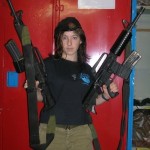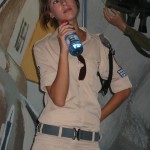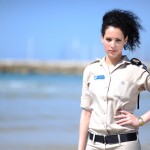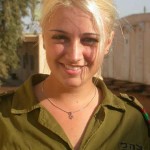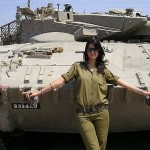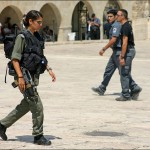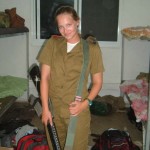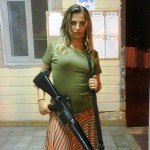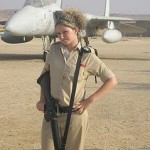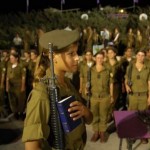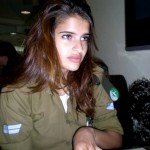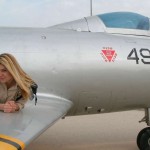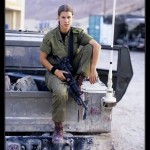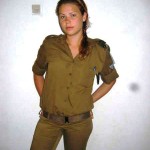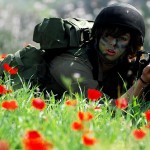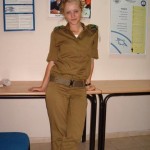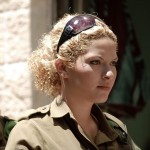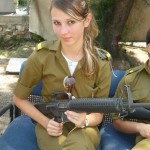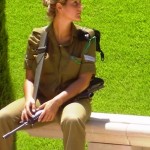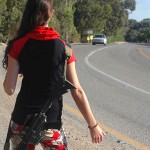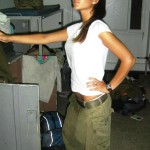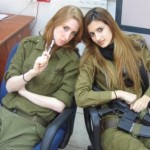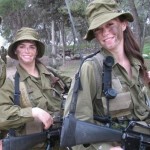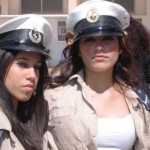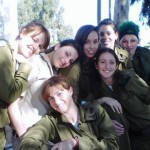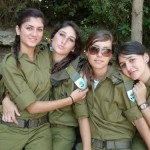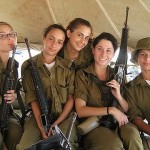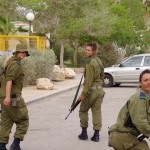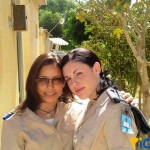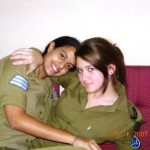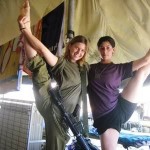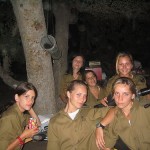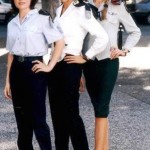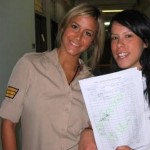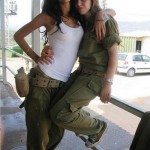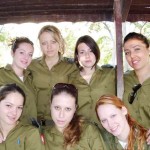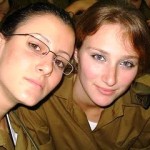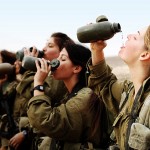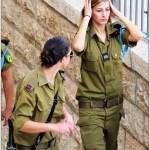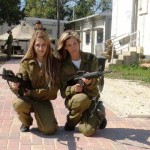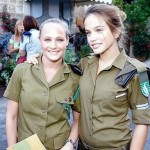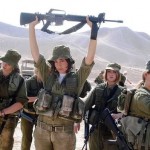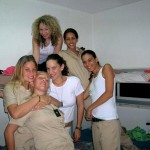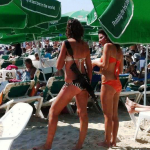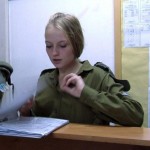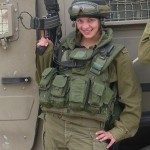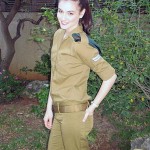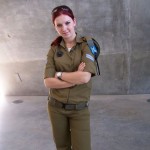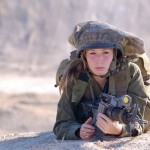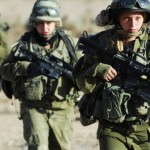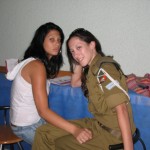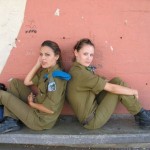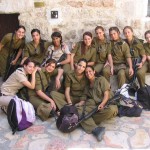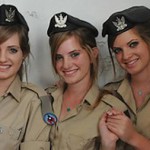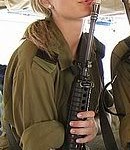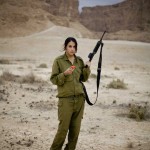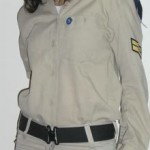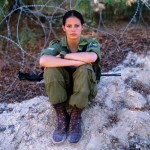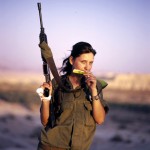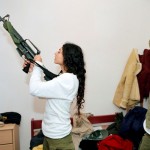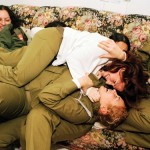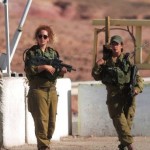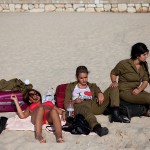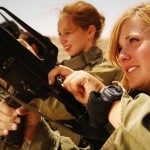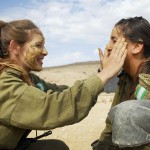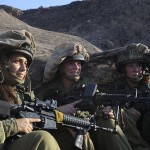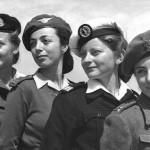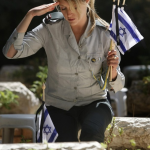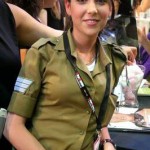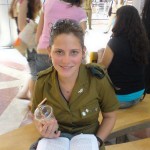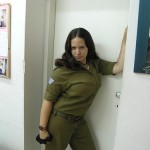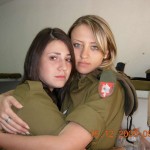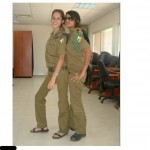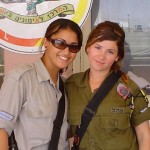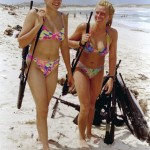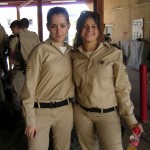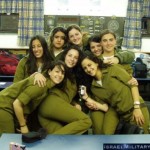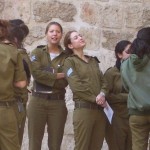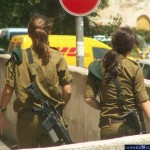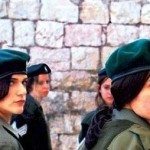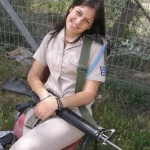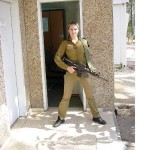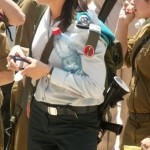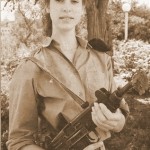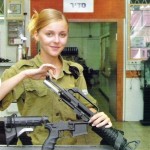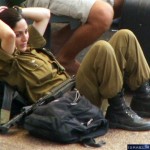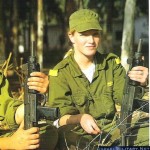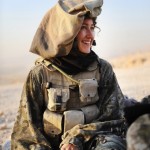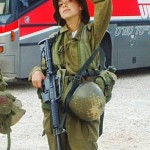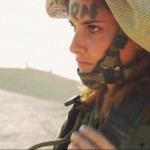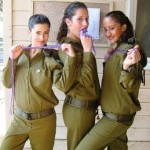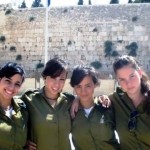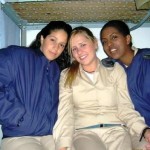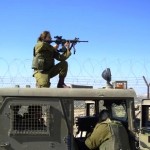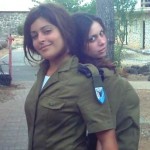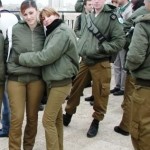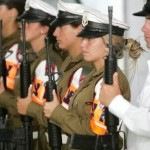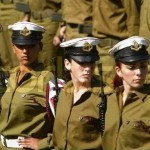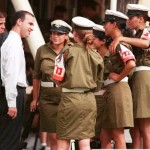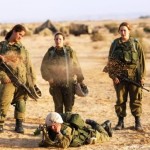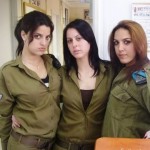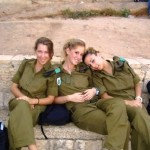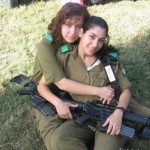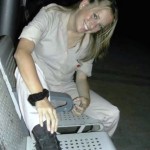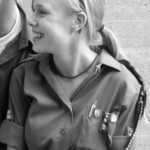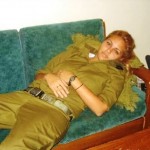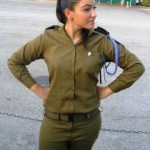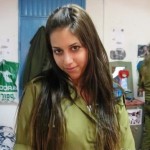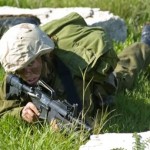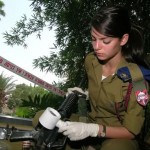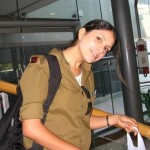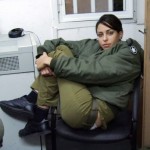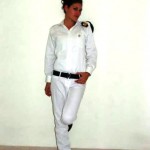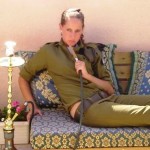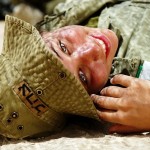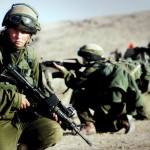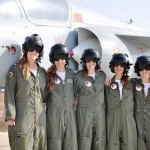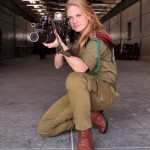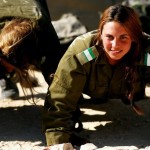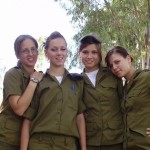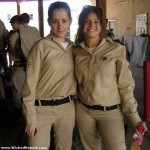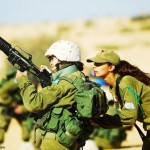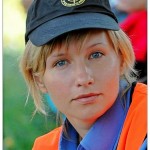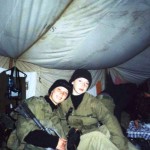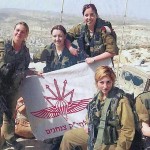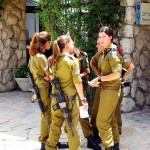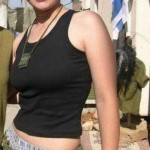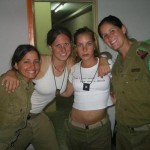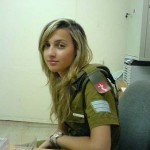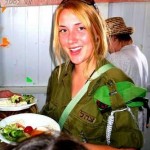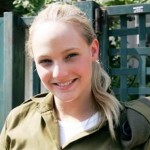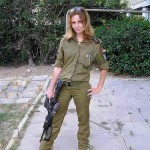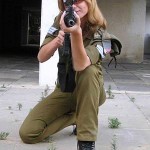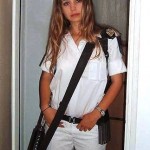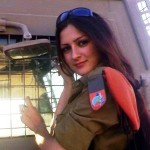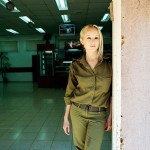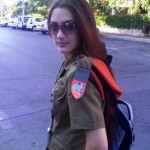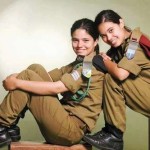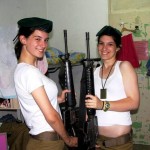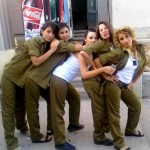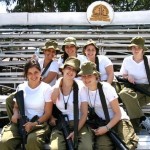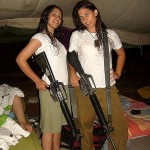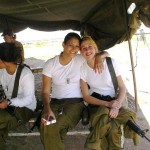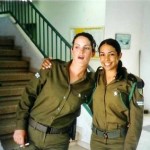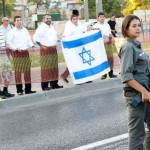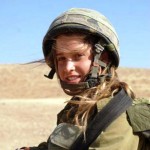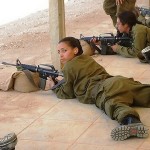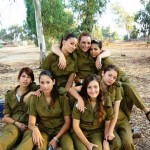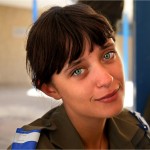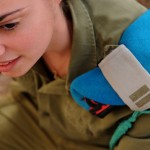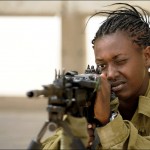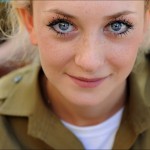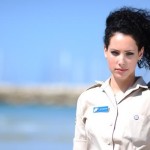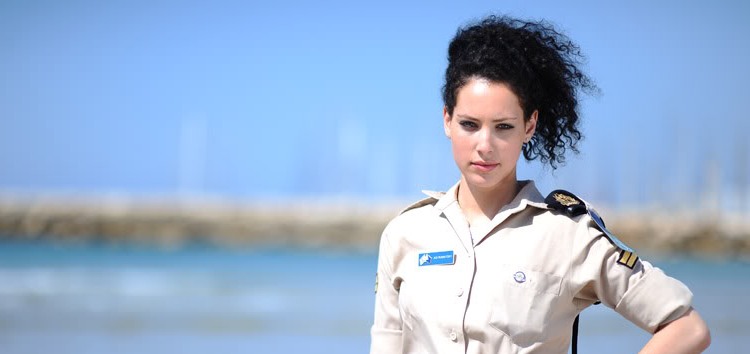
Women In The Israel Defense Forces



Click on a picture to enlarge or play slide show
See hundreds more Israeli Female Soldiers pictures here:
Israel is the only country in the world with a mandatory military service requirement for women. Women have taken part in Israel’s military before and since the founding of the state in 1948, with women currently comprising 34% of all IDF soldiers, fulfilling various roles within the Ground, Navy and Air Forces. The 2000 Equality amendment to the Military Service law states that “The right of women to serve in any role in the IDF is equal to the right of men.” Currently, 88% of all roles in the IDF are open to female candidates, while women can be found in 69% of all positions.
History
Before the State of Israel
Before the establishment of the state, women served in combat roles in the militias that would become the Israel Defense Forces. The rate of women who took part in combat organizations stood at 20%. At the years before the establishment of the IDF, military service for women existed in the lines of the Shomer and Hagana organizations. The Hagana stated in its law that its lines were open to: “Every Jewish male or female, who is prepared and trained to fulfill the obligation of national defense.” Most served as medics, communications specialists, and weaponeers. During WWII approximately 4,000 females volunteered for service in the British assisting forces. One of them, Alice Hatzor-Hirsch, was about 16 when she joined the Hagana. In 1942, she joined the British army as a driver. “We were more connected than the others,” she recalled years later. “A girl becoming a driver in the British army was considered the height of boldness at the time.”
In Tel-Aviv of the 1940’s, a battalion was established in which women filled positions in security, weapons transport, and manned anti-aircraft posts. In the winter of 1948, during the Israeli war of independence, women joined the combat soldiers of the Palmach, who traveled from Tel Aviv to Jerusalem with their weapons concealed in their clothes. The Palmach arm (thirty percent of which were females) trained nine female platoon commanders, and other female squad commanders.
1948 War
Less than two weeks after the Israeli Declaration of Independence on 14 May 1948, Prime Minister David Ben Gurion officially set up the IDF as the country’s army. On 18 August 1948, mandatory conscription for single and married women without children (born between the years 1920-1930) began.
Women served in many positions including nurses, signal operators, drivers, clerks, cooks and more. The Women’s Corps, under which all women served, was responsible for taking care of women soldiers’ needs and for their training and integration into different IDF units. The Women’s Corps also sent young women soldiers to be teachers in developing areas and immigrant neighborhoods of Israel.
Since 1948
Apart from during the 1948 Arab-Israeli War, when manpower shortages saw many IDF Women taking active part in land battles, women were historically barred from battle in the IDF, serving in a variety of technical and administrative support roles. IDF commanders have historically considered the practice of assigning women to combatant duties to be immoral due to the heightened danger of sexual assault that female soldiers would face if captured by the enemy. Soon after the establishment of the IDF, the removal of all women from front-line positions was decreed. Decisive for this decision was the very real possibility of falling into enemy hands as prisoners of war. It was fair and equitable, it was argued, to demand from women equal sacrifice and risk; but the risk for women prisoners of rape and sexual molestation was infinitely greater than the same risk for men. A majority of women serving in the IDF then were secretaries. The rest served primarily as instructors, nurses, clerks and telephone operators. A few women flew transport missions in the 1950s and a few women were accepted into flight training in the 1970s, but did not complete the program before it was closed to women. Yael Rom, the first female pilot trained by the Israeli Air Force, earned her wings in 1951. Hava Inbar, a lawyer, was appointed the judge of the military court in Haifa in September of 1969, thus becoming the first female military judge in the world. “I do not know if I want to be a military judge my whole life,” she said in an interview, “but I am glad that I was appointed; it proves that the IDF leaves almost all doors open for its female soldiers.”
During the Yom Kippur War, due to a growing need for ground forces, women were needed in roles in the field. According to Rina Bar-Tal, chair of the Israel Women’s Network, roles for women beyond technical and secretarial support only started to open up in the late 1970s and early ’80s, because of manpower shortages. Since then, a few women have earned ranks higher than colonel. In 1986, Amira Dotan, then head of the Women’s Corps, became the first female brigadier-general.
Gender equality
Civilian pilot and aeronautical engineer Alice Miller successfully petitioned the High Court of Justice to take the Israeli Air Force pilot training exams, after being rejected on grounds of gender. Though president Ezer Weizman, a former IAF commander, told Miller that she’d be better off staying home and darning socks, the court eventually ruled in 1996 that the IAF could not exclude qualified women from pilot training. Even though Miller would not pass the exams, the ruling was a watershed, opening doors for women in new IDF roles. Female legislators took advantage of the momentum to draft a bill allowing women to volunteer for any position, if they could qualify.
In 2000, the Equality amendment to the Military Service law stated that “The right of women to serve in any role in the IDF is equal to the right of men.” The amendment that female lawmakers had drafted granted equal opportunities to women found physically and personally suitable for a job. The question of who and what was “suitable” was left to the discretion of military leaders on a case-by-case basis. Women did start to enter combat support and light combat roles in a few areas, including the Artillery Corps, infantry units and armored divisions. A few platoons named Karakal were formed for men and women to serve together in light infantry. By 2004 Karakal became a full-fledged brigade. Many women would also join the Border Police. The Women’s Corps was dismantled in 2000, so that female soldiers for the first time would fall under the authority of individual units based on jobs and not on gender. They would wear the insignia of their units instead of the insignia of the Women’s Corps. The position of Adviser to the Chief of General Staff on Women’s Affairs was created.
The first female jet fighter pilot, Roni Zuckerman, received her wings in 2001. By 2006, the first female pilots and navigators graduated from the IAF training course, and several hundred women entered combat units, primarily in support roles, like intelligence gatherers, instructors, social workers, medics and engineers. When the Second Lebanon War broke out, it was the first time since 1948 that women were in field operations alongside men. Airborne helicopter engineer Sgt.-Maj. (res.) Keren Tendler was the first female IDF combat soldier to be killed in action. In November 2007 the Air Force appointed its first woman deputy squadron commander.
In 2007, the Head of Personnel Branch, Major General (res.) Eliezer Shtern, appointed a committee to define women’s service in the IDF in the next decade, with the objective of increasing equal opportunities in women’s service in the IDF. In September 2008, the committee’s recommendations were presented to the IDF General Staff. Rav Aluf Gabi Ashkenazi, then-Chief of Staff, supported the committee’s vision:
“The IDF, as a leading organization in Israeli society, designates the service of men and women to a fulfilling and respectful service based upon equal opportunities in the service of [the] IDF and the State of Israel.”
On 23 June 2011, Orna Barbivai became the first female Major-General in the IDF upon her promotion to the role of commander of the Manpower Directorate. She is the second woman to serve on the General Staff.
Service
The unisex Caracal Battalion, which serves in a full combat capacity (2006)
Mandatory service for women in the IDF is 24 months, apart from roles specified in law which require a service length of 36 months. Women may be exempted from military service for reasons of religious conscience, marriage, pregnancy or motherhood. A woman may receive an exemption on religious grounds under the following conditions:
1.She has declared that for reasons of conscience, or a religious way of life, she is prevented from doing military service and has proven this to the satisfaction of the exemption committee.
2.She keeps the laws of Kashrut at home and outside.
3.She does not travel on Shabbat.
Women who arrive in Israel at age 17 and over are generally exempt from army service, but may serve on a voluntary basis. Also, women (who are not fighters) are not generally called up for reserve duty if they are married or if they are beyond age 24.
Combat roles
Clause 16A of the military service law requires that female combat soldiers serve 3 years of mandatory service, and continue in reserves service up to age 38, even if they become mothers. These are essentially identical to the terms of service for male combat soldiers. Each year, 1,500 female combat soldiers are drafted into the IDF.
A combat option for women is the Caracal Battalion, which is a highly operational force that is made up of 70 percent female soldiers. The unit undergoes training like any combat infantry. Elinor Joseph, who has served with the Caracal Battalion, is the first Arab woman ever to serve in a combat role in the Israeli army.


